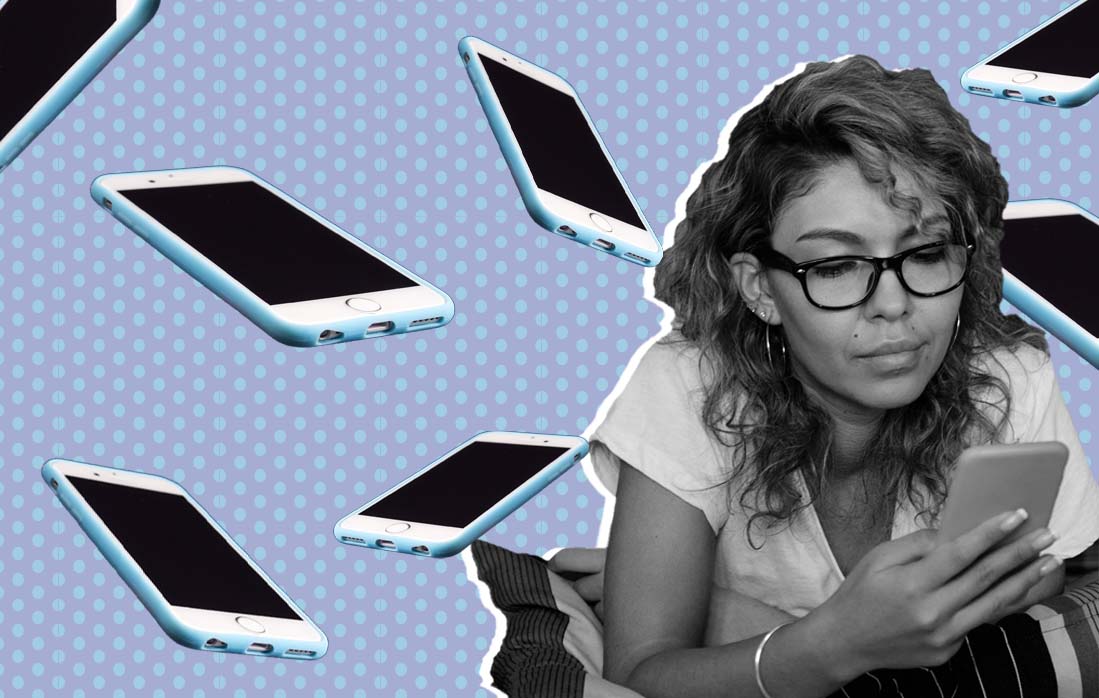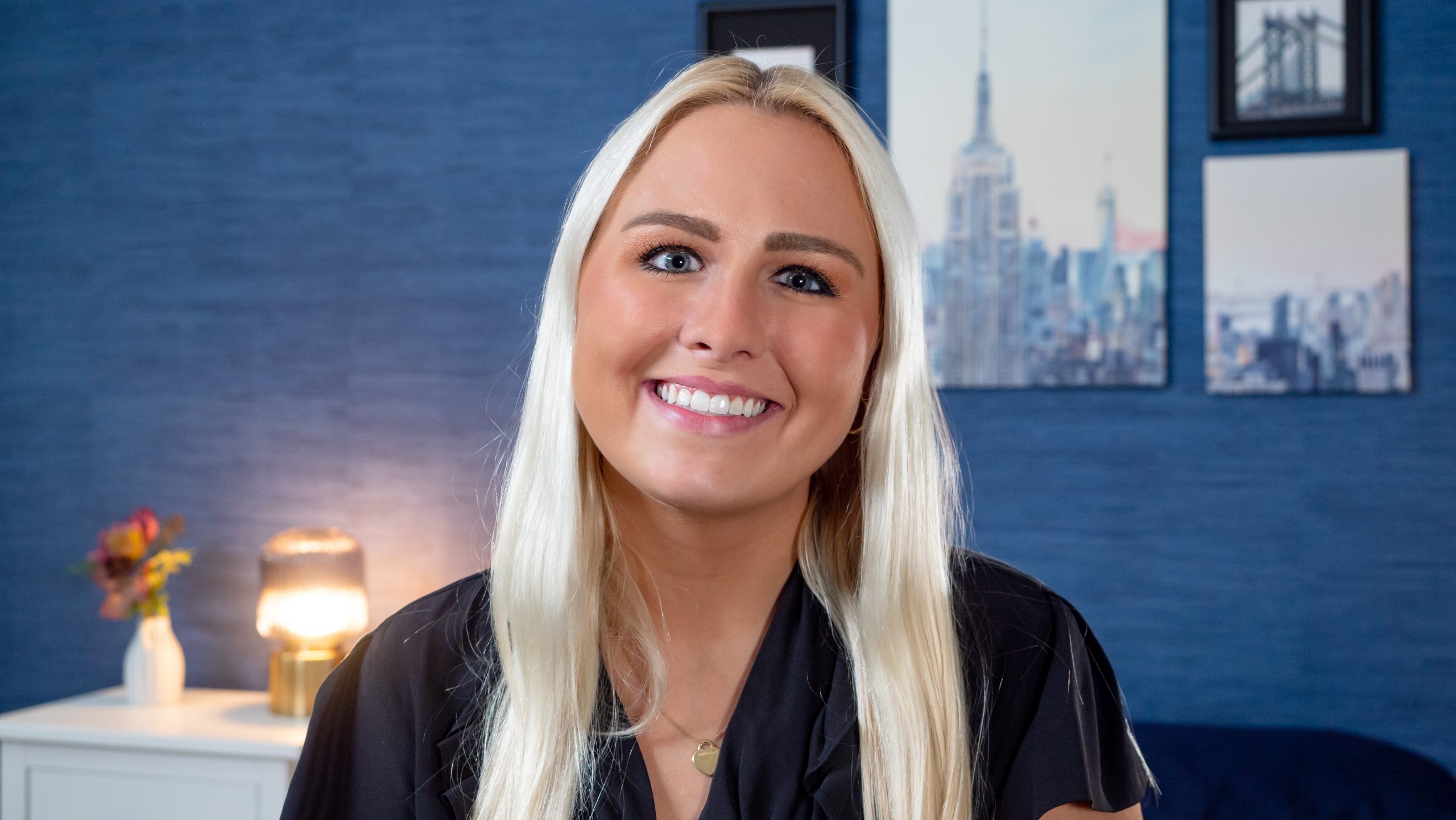
You’re constantly told that staying on your phone too late is bad for you, but what if that’s not always the case?
The relationship between media use and sleep quality is not a simple one, from wreaking havoc on your circadian rhythm to that pesky blue-light blocking melatonin release. It’s often hard to think of any benefits of scrolling late at night besides that feeling of “sleep revenge” you get when spending a few hours on Tik Tok.
A recent small study, co-authored by Dr. Lindsay Hahn, Ph.D., an assistant professor of communication at the University at Buffalo College of Arts and Sciences and an expert in media psychology and media effects, found data that suggests media use before bedtime could actually be beneficial for getting to sleep earlier and for longer periods. Her study found that using media for one hour or less right before bed was associated with an earlier bedtime, and an overall longer sleep time when performed in bed.
Dr. Hahn relayed her team’s interest in this study was sparked by the increasing amount of studies on media use’s impact on sleep but with a myriad of inconsistent results. “Many of these studies also rely on self-reported sleep quality or they measure participants’ sleep by having them sleep in a lab,” she tells Sleepopolis. “We were interested in moving toward more objective measures of sleep – but doing so ‘in the wild’ in participants’ actual homes so that we didn’t disrupt their usual routine.”
“Media use often gets a reputation for being ‘bad’ for us – but the reality is that the relationship between media and our physical health, including our sleep quality, is much more complicated than a simple label of ‘bad’ or ‘good.’” She feels that it’s worth acknowledging the good side of media, like music and Tv, because it’s such an integral part of our lives.
Hahn specifically wanted to zone in on “entertainment media,” exclusively narrowing down her research to legacy media, which included television, YouTube videos, video games, books, and music. She noted that so much recent focus in popular culture has been on social media, but studies on how Americans spend their time show people are still watching TV, reading books, and listening to music too. “Watching a streaming service or listening to a podcast before bed can serve as a passive, calming activity that improves aspects of your sleep,” Hahn added. Her findings suggest that these types of focused media can assist with relaxation and are associated with certain aspects of improved sleep.
Dr. Hahn suggested that social media is not the only thing people should be looking at when it comes to media use and sleep, explaining that “spending time with social media before bed may lead to different impacts on sleep, but that’s for future research to figure out.”
The study looked at 58 free-living adults (meaning in their own homes) and measured their time spent with different media before bed, the location of use, and multitasking. She had her participants log their experiences via media diaries.
This is, of course, as long as you’re not multitasking, like toggling back and forth between texting and tweeting. There are some boundaries needed to do this right. The benefits of this media use diminished as people used media longer than the 1-hour period, or further multitasked.
“Contrary to previous research, we found no evidence that media use before bed, regardless of duration, impacts sleep quality, such as time spent in REM or deep sleep,” said Dr. Hahn when questioned about the impact on the brain.
Looking to test out this new data in your own life? Here are a few quick tips you can put into action.
Tips to Utilize Your Screens for Sleep
- Pick a medium that works for you, but don’t limit yourself to just socials, which could lead to operating in a few different tabs. Press play on your favorite playlist, whip out the e-book, or watch an episode or two of your favorite show. (Dr. Hahn especially likes relaxing phone games, like Domino Drop, or podcasts, as they are “designed to help you fall asleep.”)
- Use your choice of media for up to an hour before bedtime – no longer.
- Try out that hour of media use while in bed.
- And finally, for this to work, remember, no multitasking.
“If you wake up feeling particularly energized – or particularly groggy – some mornings, it’s worth thinking back to how you spent time with media the night before,” Hahn added.
She sees the importance of looking at how media impacts your personal sleep routine and quality because they are quite a complex pair. Dr. Hahn had some final, self-reflecting suggestions for assessing your own media diet and improving sleep hygiene.
- “Think about the duration of your use (was it longer or shorter than usual?)”
- Determine your focus. Were you multi-tasking or using it for relaxation?
- Was the media you engaged with exciting or calming?
So what’s next? “We are working on a follow-up study right now that looks at the difference between ‘challenging’ and ‘non-challenging’ media, and how these types of media may affect the relationship between media and sleep,” said Hahn. She also recommends that “people should figure out what types of media work for them and then leverage those media to their advantage.”
Have you noticed media use benefiting your sleep before reading this article, or are you eager to try? I’d love to hear about your experience. Drop a line to carley.prendergast@pillarfour.com.
